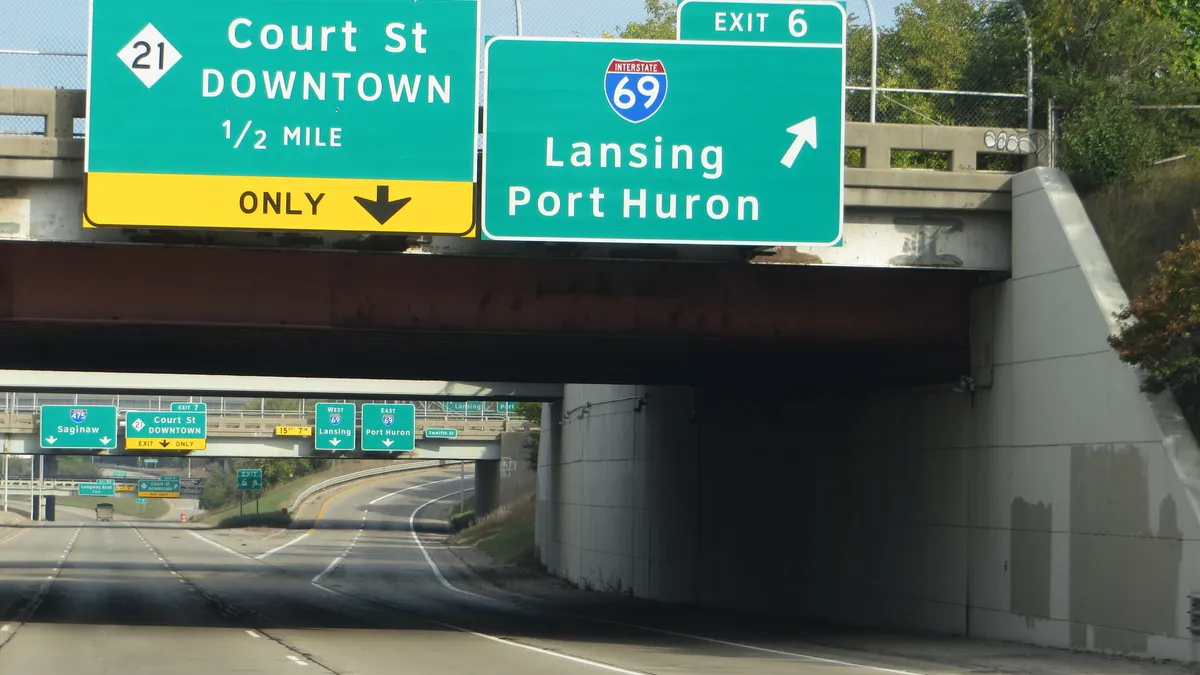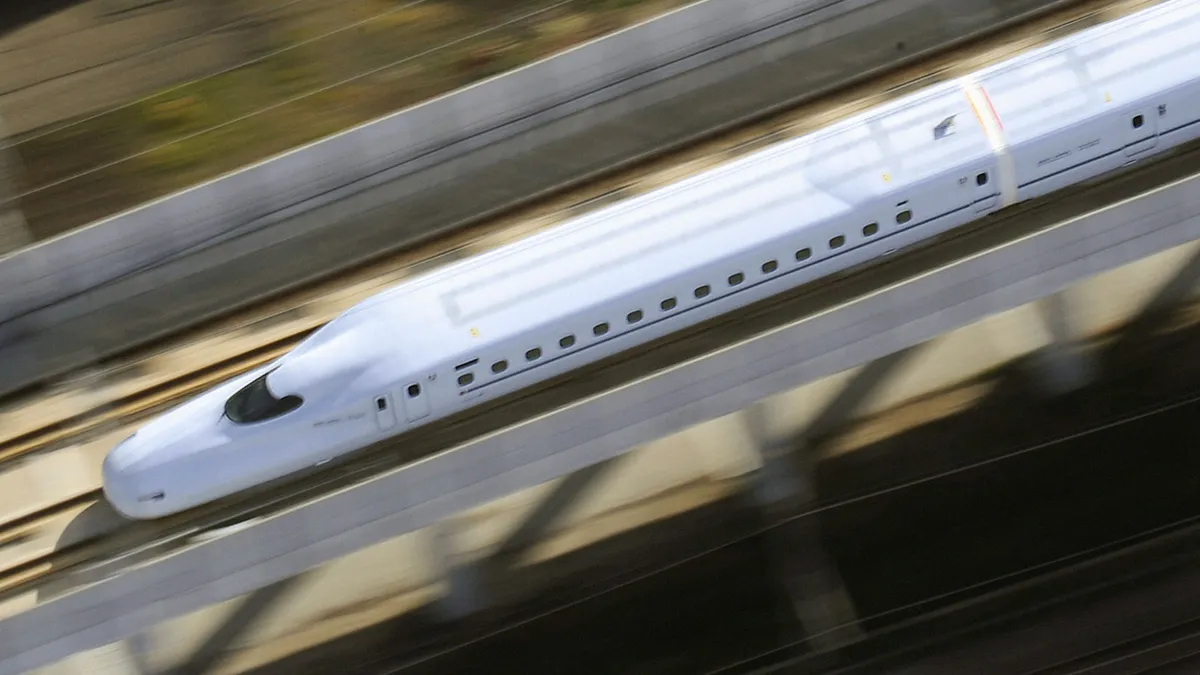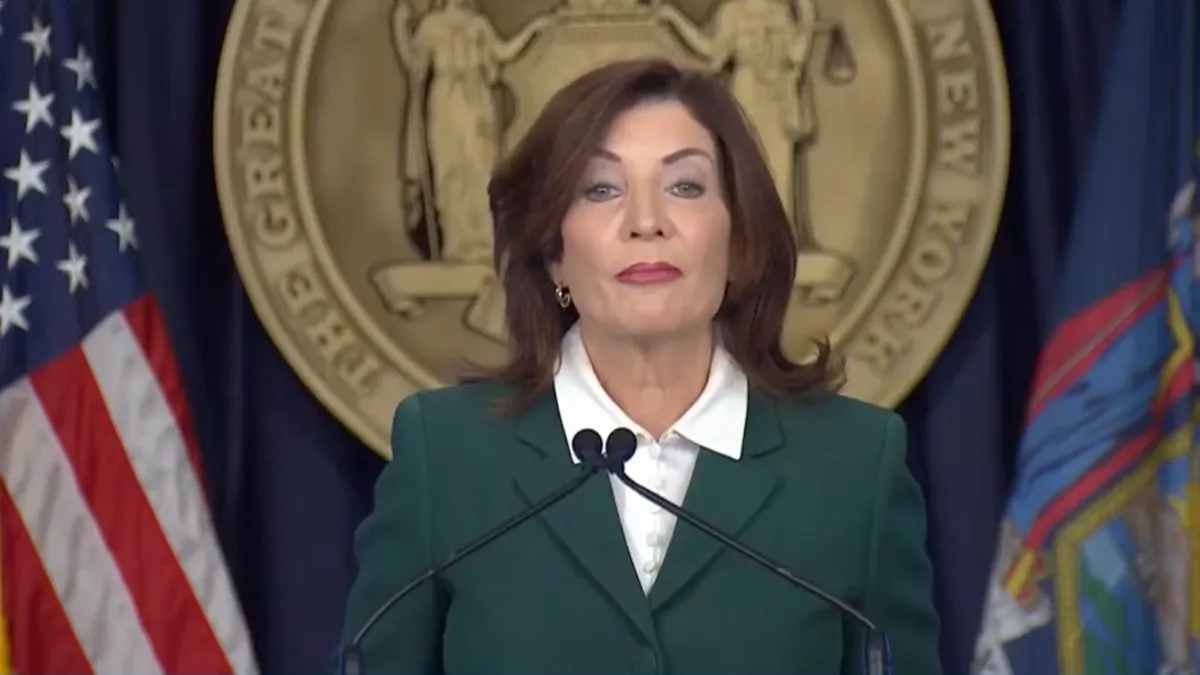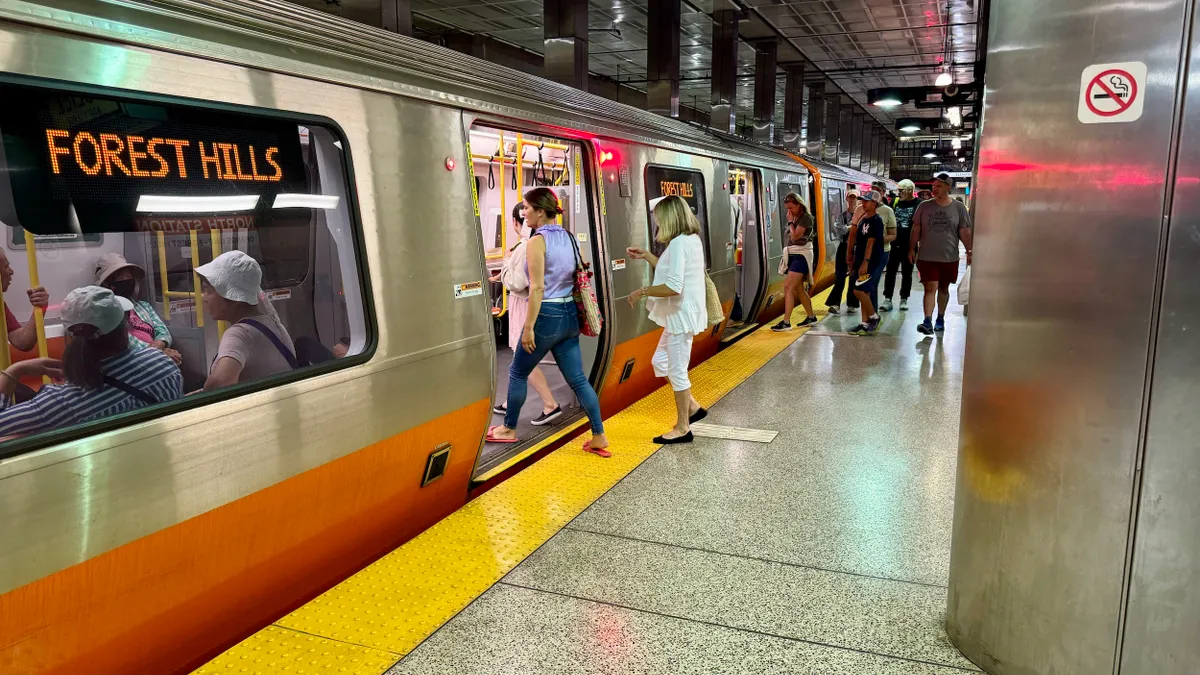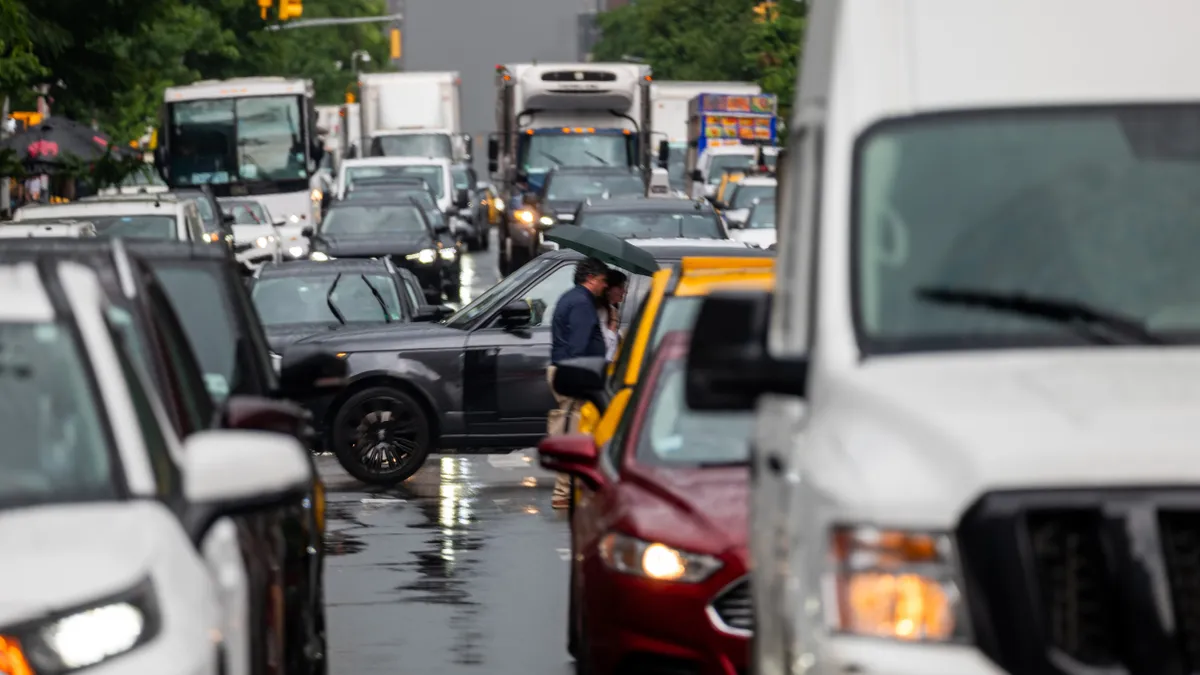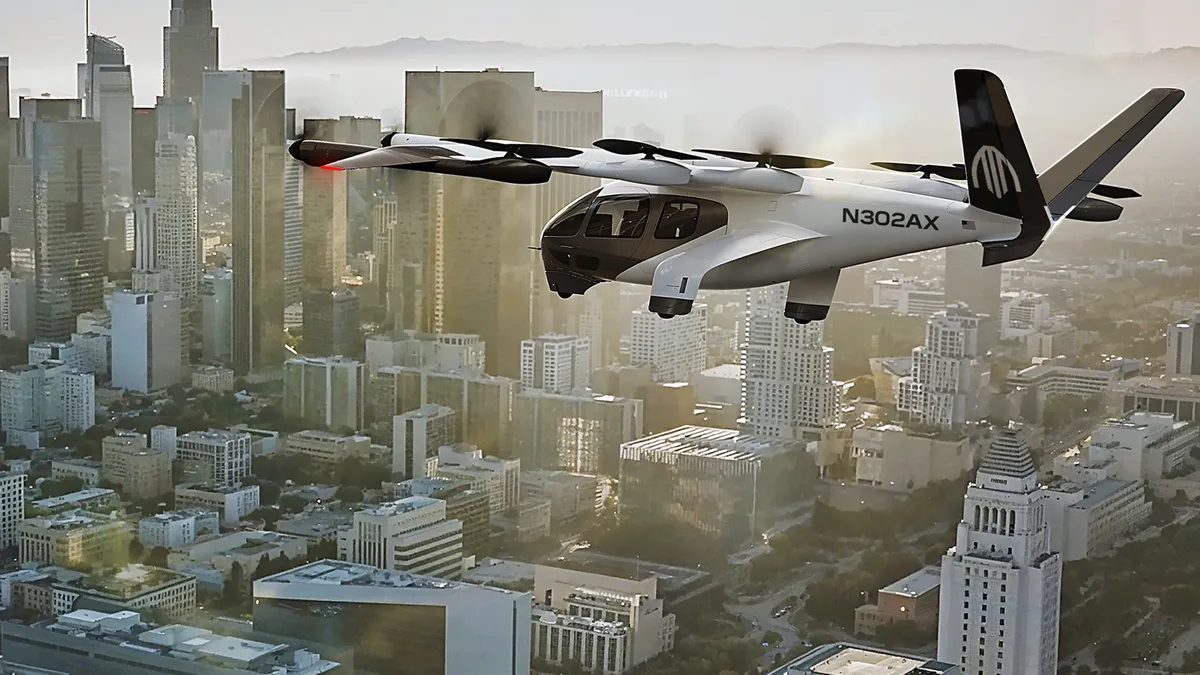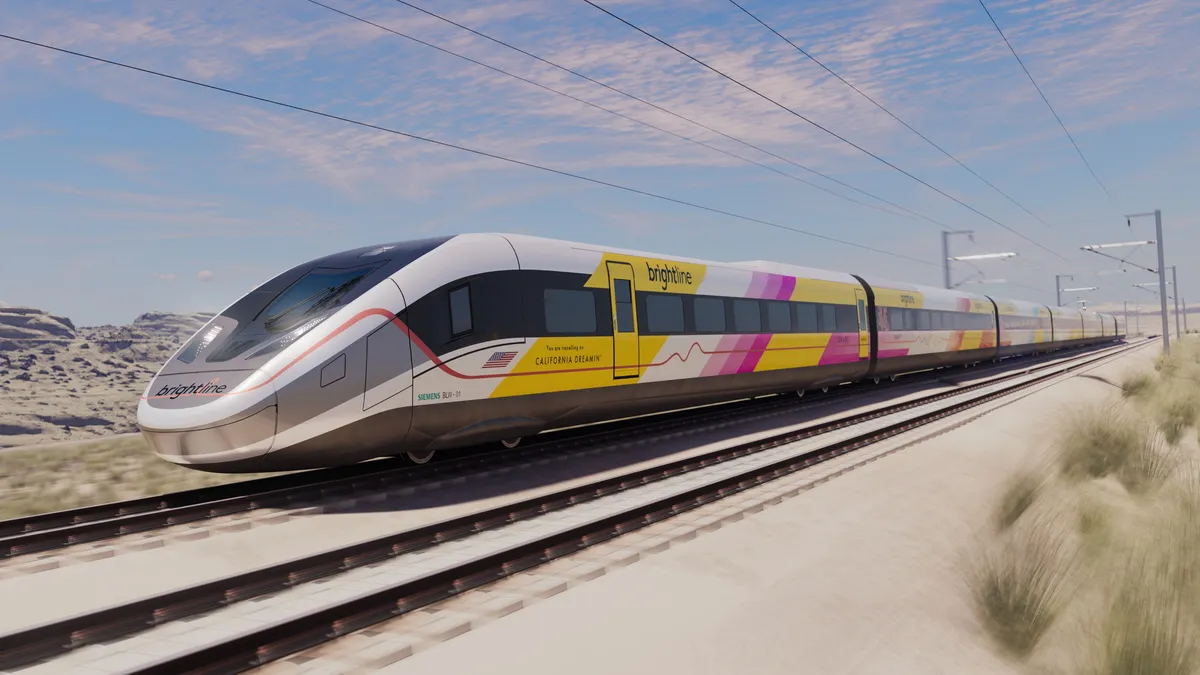President Joe Biden's infrastructure plan is an ambitious, $2.3 trillion proposal that would see an overhauling of airports, highways, electrical grids, water systems, school construction, public transit and clean energy.
Republican leaders — who countered Biden's mammoth plan with their own $568 billion infrastructure framework — don't see eye to eye with the administration on the amount of money that needs to be spent, nor where it comes from, but have acknowledged the need for infrastructure improvements.
Despite the lack of clarity on how to reach an agreement, lawmakers on both sides of the aisle have begun to lobby for a share of federal infrastructure money to reach their constituents.
Below is a look at five of the projects and upgrades that are on lawmakers' wish lists:
Indiana: Interstate 69
Rep. Larry Bucshon, R-Ind., has raised concerns about Interstate 69 (shown above), the highway system that, when finished, will run from the Canadian to Mexican border. The interstate runs through Texas, Mississippi, Tennessee, Kentucky, Arkansas, Michigan and Indiana.
Eventually, the I-69 system will span more than 2,400 miles, though, as Bucshon put it in written testimony to the House Committee on Transportation and Infrastructure, it currently consists of multiple disjointed sections, which makes it "less safe and efficient."
Bucshon specifically called attention to the need for a bridge over the Ohio River. The Interstate 69 Ohio River Crossing would carry the planned Interstate 69 extension over the Ohio River between Evansville, Indiana, and Henderson, Kentucky. Once that section is complete, it would link I-69 from Port Huron on the Canadian border to Memphis, Tennessee, Bucshon said.
Indiana and Kentucky have agreed to share the bridge construction costs, which are estimated to be $850 million for the bridge itself, reaching $1.5 billion with financing and other planning costs. The project is currently waiting for the funding to be available, Bucshon said, which is not expected until 2027 at the earliest, and, with an estimated construction timeline of three years, that could mean the river crossing's completion is a decade off.
Bucshon has argued that the river crossing will reduce crashes, as traffic in the corridor is expected to grow, and that it would establish trade routes from Canada through the U.S. into Mexico.
"This committee should make completing Interstate 69, and more specifically completion of the Ohio River Crossing, a priority to facilitate safe and efficient trade and travel for years to come," Bucshon said.
Minnesota: Bridges
Sen. Amy Klobuchar, D-Minn., recently wrote a letter to Transportation Secretary Pete Buttigieg, requesting his support for funding bridge repair and restoration in Minnesota. In her letter, Klobuchar cited that the American Society of Civil Engineers gave America's Infrastructure a poor grade, and the group's identification of over 46,000 bridges in deteriorating condition across the country. According to a report from the Federal Highway Administration, 600 of those bridges are in Minnesota — which were represented on a map in Klobuchar's letter.
"Minnesotans will never forget the day when the I-35W bridge collapsed into the Mississippi River, taking the lives of 13 people and injuring many more," Klobuchar said in her letter to Buttigieg. The poor quality of the bridges and roads could cost households up to $3,300 a year in added fuel and repair costs, Klobuchar wrote, adding that infrastructure investments yield high returns; roughly $3 for every $1 invested.
Ohio: Hyperloop
Rep. Marcy Kaptur, D-Ohio, an electric vehicle advocate, has also called on Congress to support the DOT's New and Emerging Technologies Council, in hopes that it will provide strategic support for technologies like hyperloop — a proposed form of public transport that would use a system of sealed tubes with low air pressure to transport passengers rapidly in pods mostly free of friction.
Hyperloop technology has been championed by Elon Musk, who's tunneling firm, The Boring Co., has begun to work on shorter distance projects like at the Las Vegas Convention Center, while hoping to build larger projects across the country. The Boring Co.'s tunnels are currently underground tubes through which Teslas ferry passengers. Kaptur said she hoped to see the technology within her own district someday.
"I believe DOT has an important regulatory and leadership role to help guide hyperloop technology to ensure that one day, a commuter passenger can travel from downtown Toledo to downtown Chicago in a matter of minutes," Kaptur wrote in her written testimony for the Committee on Transportation and Infrastructure, a trip that takes roughly four hours by car.
New York/New Jersey: Hudson River Tunnel
The Obama administration had originally pledged support for the $11.6 billion Hudson River Tunnel project between New York and New Jersey, but former President Donald Trump refused to honor a reported deal between the DOT and New York and New Jersey's governors. The Trump administration said the project, which would repair the Amtrak tunnel that was damaged by saltwater intrusion during Superstorm Sandy in 2012, did not qualify for federal funding and advocated solely for repairs to the existing tunnel.
Both governors as well as public transit groups and Senator Chuck Schumer (D.-N.Y.) have long advocated for federal money for a new or repaired tunnel, saying its cost is beyond what the state governments can afford.
Now, after years of negotiating, the environmental impact statement necessary for the project's advancement, which was delayed by three years, is due to be finished next month. In addition, when Buttigieg laid out infrastructure priorities for the House Committee on Transportation and Infrastructure last month, he told lawmakers that the project will be a priority.
Washington: Bridges and transit
Rep. Pramila Jayapal, D-Wash., whose district makes up part of Seattle, has called attention to her district's need for new infrastructure, citing a recent Seattle Department of Transportation report that found that 65% of Seattle's bridges were in fair condition, and 6% were in poor condition. Her testimony priorities for infrastructure in the area include:
- Substantial funding for bridges.
- Investments in public transit, including light rail.
- Funding dedicated to infrastructure in small- and medium-sized cities.
- Earthquake resilience.
Jayapal also has brought attention to the West Seattle Bridge, the most trafficked in the city. Cracks discovered during an inspection forced the city to close the bridge in March 2020. The closure created a ripple effect, where West Seattle's primary access point was shut down, impacting delivery times of large supplies and foods. Jayapal said she anticipates the delays will get worse as COVID-19 restrictions lift and people begin commuting and traveling through the city more frequently.



